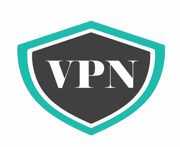Best VPN Sites for Sailors, 2023
Intro

If you are sailing around on a catamaran, or any yacht for that matter, the chances are that you will need a VPN, or Virtual Private Network, to help secure your connection on open networks (such as in a marina or airport) and access content from different countries on services like Netflix, BBC iPlayer and Amazon Prime.
The last reason is the big one for us. Media companies carve out the rights to their content by country and this can get very complicated (and frustrating) if you are moving from country to country.
But it’s important to understand what VPNs can do, and what they can’t do in terms of privacy. In some cases, you are merely handing over the keys to your privacy from your ISP (or mobile network) to the VPN company, so you need to do your research before taking the plunge.

There are other factors such as price, reliability, content access and speed of course, but we’d recommend that you put privacy and security at the top of your list when making a decision and take the time to understand the limitations of this technology.
Virtual Private Networks, or VPNs, have become very popular in recent years due to concerns over online privacy and security. In a nutshell, VPNs are used to create a private and secure connection between a user’s device and the internet.
In this article, we will discuss what VPNs are, what they do, and our recommendations of the best VPN for sailor’s.
What Is a VPN?

A VPN, or Virtual Private Network, allows you to connect to the internet securely and privately with some caveats. When you connects to a VPN, your internet traffic is routed through an encrypted channel via the VPN’s servers, which protects your data from third parties.
This “tunnel” provides a secure connection between your device and the VPN server, which is usually located in a different geographic location. VPN companies normally operate from servers in multiple countries, so that you can grab an “IP address” from that country.
This helps when accessing content from overseas, as many media companies restrict access to some content to certain countries (we are back on that media rights conversation again).
Our Favourite VPNs for Yachties
1. NordVPN: the most features

NordVPN has very quick server speeds, and privacy add-ons like their like ‘Double VPN’ encryption, PLUS an independently audited no-log policy.
It is more expensive, but you can save money on the annual and multi-year plan. Also has a s 30-day money-back guarantee.
2. Surfshark: another Value for Money VPN

With a name like that, I guess it is no surprise that Surfshark have been focusing on the sailing market recently.
They have improved their speeds and latency, it’s packed with features and very good at unblocking restricted services in 100 countries.
The cost is less than US$2.40 USD – great value for money with thirty day money-back guarantee for new users to test the service out.
3. Atlas VPN: for Value

Atlas is a global service (hence the name) that represents excellent value compared to the competition. The surfing speeds are good too. Good for yachts in other words.
They offer “Unlimited VPN” which means that they do not limit the number of simultaneous connections in different devices you make.
This VPN operates a strict no-logs policy, meaning no personal data is stored.
Plus, the Atlas VPN apps have a kill switch, so it ticks off a lot of our boxes.
4. ExpressVPN: the biggest?
ExpressVPN is probably the most popular VPN out there, so that counts for something.
Their strapline is “a VPN that just works”, it we can’t argue with that. It is famous for its performance, reliability, and user friendliness. You even get a password manager and free cloud backup. Again, on the higher end of the price scale, but you get a very well developed product. Test it with a 30-day money-back guarantee.
What Does a VPN Do Exactly?
A VPN have several functions, including:
– Privacy Protection: A VPN protects your privacy by hiding your IP address. This prevents ISPs, governments, and other entities from tracking user activity and monitoring your online behaviour.
– Security: A VPN provides an extra layer of security by encrypting internet traffic, which prevents hackers and others from intercepting sensitive data.
– Bypassing Censorship: In some countries, governments censor certain websites or online content. A VPN can help bypass these restrictions by routing internet traffic through a different geographic location. You can’t access Twitter in China, for example, unless you are on a VPN.
– Access Media Overseas: similarly, by assigning you an IP from another country, VPNs can help you access content that would otherwise be unavailable from overseas. This is probably the #1 reason for sailors using VPNs, as they are on the move so much.
Can VPNs Protect Your Privacy? What Can’t They Do?
VPNs won’t protect against all types of online tracking. For example, if you log into a website with your name and address, a VPN won’t prevent the website from collecting this information.
Also, remember that the VPN can see your activity. However, t is not in their interest to track you from a commercial perspective, and many companies make this a selling point (destroying records of user behaviour), but be aware that some VPN providers may log user activity and data, which could compromise your privacy. Choose a VPN provider that has a strict no-logging policy and takes user privacy seriously.
How To Select the Best VPN for Sailing
There are several factors to consider when choosing a VPN, including:
– Essential Features: Look for a VPN with strong encryption, a strict no-logging policy, and a kill switch, which disconnects the user from the internet if the VPN connection is lost.
– Types of VPN Services: There are several types of VPN services, including Personal VPN, Site-to-site VPN, Mobile VPN, Cloud VPN, and TOR over VPN. For sailing, we’d prioritise the Personal VPN, the Site to Site service and Mobile VPN. They should provide a desktop app for your laptop and an Apple or Android app for your mobile.
Make sure that you can use the VPN on multiple devices. If you have a Smart TV, make sure there are apps for that device as well. Then you can log into the same VPN server on your phone and TV and even cast stuff onto the bigger screen (from Netflix, for example). Very convenient!
– Server Numbers: generally, the more servers a VPN provider has, the better. This allows you to connect to different geographic locations and access content that may be restricted in your location. But focus on the countries that you are most interested in. If you like BBC iPlayer, that would be the UK. People from the States might need access to a US server to watch their favourite Netflix shows, and so on.
– Speed and Performance: Choose a VPN service with fast speeds and low latency to ensure a smooth browsing experience. Ultimately, you are still dependant on the speed of your local connection, but you have less control over that. The VPN speed will ensure that that is the only connection you need to worry about.
– Cost: Consider the cost of the VPN. Search around for the best deals. You may find you can save quite a bit of money going for an annual plan, but we’d recommend a shorter time period to begin with so that you can properly test the service.
Essential Features of VPNs for Sailors
Other than speed, reliability and cost, the other essential to focus on is the encryption. Services that are strong in this area will ensure that your data is protected and cannot be intercepted by hackers or other malicious actors.
A strict no-logging policy gives you confidence that your user activity and data are not recorded or stored by the VPN provider.
And a kill switch ensures that if the VPN connection is lost, the user’s device is immediately disconnected from the internet to prevent data leaks.
Types of Services
There are several types of VPN services, each with their own features and benefits including:
– Personal VPN: A personal VPN is designed for individual use and provides a secure and private connection to the internet.
– Site-to-site VPN: connects multiple locations and allows you to access resources and data from different geographic locations. This is a key feature for sailors.
– Mobile VPN: A mobile VPN is designed for mobile devices and provides a secure connection for your phone. Make sure that you sign up for a service that allows you to connect multiple devices (laptop, mobile, TV etc).
– Cloud VPN: A cloud VPN provides secure and private access to cloud-based resources such as applications and data.
TOR over VPN: TOR over VPN combines the privacy benefits of the TOR network with the security benefits of a VPN, creating an extra level of security. It may slow your browsing and streaming speed down though, so we’d focus on the services above.
Server Numbers
The number of servers a VPN provider has is a key factor to consider when choosing a VPN. More servers means more options on geographic locations, which can help you bypass geographic restrictions and access content that may be blocked in a particular region.
Content providers are continuously upgrading their services, so you need a VPN that stays ahead of the game and frequently updates its access points. Having more servers can improve connection speeds and reduce latency.
Speed and Performance

Look for fast and reliable VPNs for the best streaming and browsing experience. VPN speed can be impacted by several factors, including the number of servers, geographic location, and encryption strength. Pick a VPN with fast speeds and low latency.
Test the speed as soon as you sign up for the free trial by going to Google’s page speed page or speed test sites like Ookla.
Latency
Latency is the time it takes for data to travel from your device to the VPN server and back. High latency can result in a slow and laggy browsing or streaming experience (the dreaded Wagon Wheel), which can be frustrating.
How Much Does a VPN Cost?
The cost of a VPN can vary widely. You can get some for free (the quality is not great as you can imagine), while most charge a monthly or annual fee. The cost can range from a few dollars per month to over $10 per month.
Factors Affecting VPN Cost
Several factors can impact the cost of a VPN, including:
– Features and Services: a VPN with more servers and advanced security features may cost more than a basic VPN.
– Server Locations: you will pay more for VPN providers with servers in more geographic locations. Focus on the countries that you will be using. You may not ever use the server in Mongolia.
– Bandwidth: Some VPN providers limit the amount of bandwidth users can use, which can impact the cost of the VPN.
What’s a Fair Price for a VPN?
A a good price for a VPN is typically between US$5 and US$10 per month. This should include a decent number of servers, fast speeds, and advanced security features.
How To Minimise the Cost of a VPN
You get what you pay for, as the saying goes, but there are several ways to reduce the cost of a VPN, including:
– Annual Plans: check for discounts for users who sign up for annual plans. We’d recommend that you test the service first over a month though. You can always upgrade to an annual plan later.
– Coupons and Discounts: look out coupons and discounts. Many sailing Youtubers have been offering special discount codes. Just be aware that they are getting a cut!
Free Trials: Some VPN providers offer free trials, which allows you to try the service before committing to a subscription.
Test the VPN Speed
It’s important to test VPN speed is important to ensure a fast and reliable connection. Search Speed Test on Google and use the service (once you are connected to the VPN). Ookla is good too.
Summary
VPNs are a key tool for sailors who want to access their favourite content globally and in fact for anyone who values their online privacy and security on a yacht (using the free Wifi at an airport, for example).
They provide a secure and private connection to the internet, protecting users from hackers, cyber criminals, and online surveillance.
When making your choice, consider factors such as server numbers, speed and performance, and cost. With the right VPN set up, you can enjoy a fast and reliable connection to the internet and access content and media globally while keeping your online activities private and secure.
